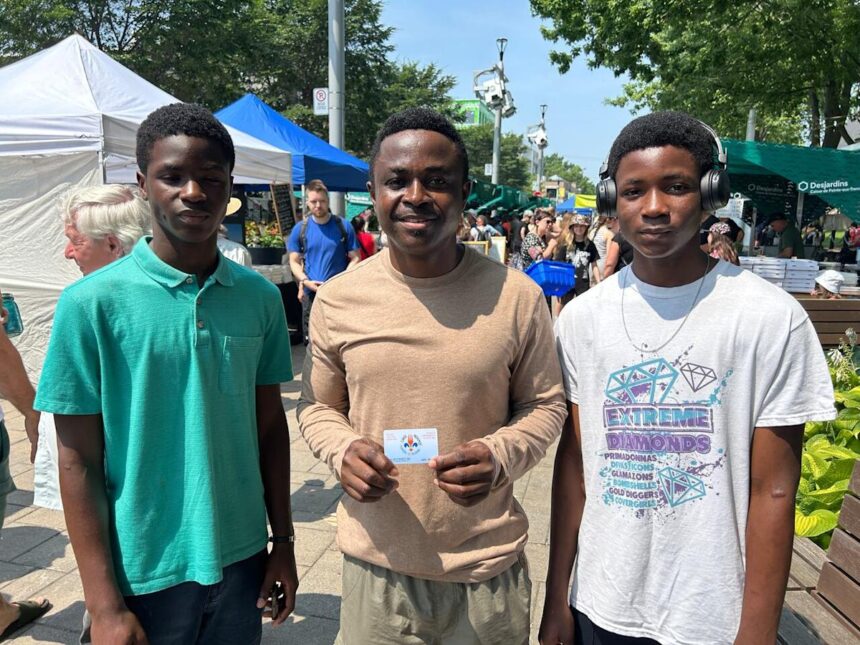The aroma of fresh produce mingles with excited conversation at Jean-Talon Market this week as Montreal’s largest public market launches an ambitious partnership tackling food insecurity across the city. This initiative pairs the market’s abundance with community organizations serving vulnerable populations, creating a direct pipeline of nutritious food to those who need it most.
“We’ve always known our markets could play a bigger role in feeding all Montrealers,” explains Isabelle Laliberté, director of Montreal’s Public Markets. “This program finally creates the infrastructure to make that happen systematically rather than sporadically.”
The initiative comes at a critical time. Recent data from Moisson Montréal shows a 39% increase in food bank usage since 2019, with nearly 100,000 Montrealers now relying on emergency food services monthly. Children represent about a third of these recipients.
What makes this program unique is its focus on fresh, local produce rather than the shelf-stable items typically available through food assistance. Each week, participating vendors donate quality unsold products before closing, which are immediately sorted and distributed to partner organizations like Multicaf, Share the Warmth, and the NDG Food Depot.
“The quality is remarkable,” says Marcel Leduc, who coordinates food programs at Multicaf in Côte-des-Neiges. “Our clients are receiving the same beautiful produce sold to market customers just hours earlier. The dignity this brings to the food assistance experience cannot be overstated.”
I’ve witnessed this transformation firsthand. Last Tuesday afternoon, as market vendors began packing up, volunteers efficiently collected crates of vibrant vegetables, fruits, and artisanal products. Within two hours, these items were being distributed at a community kitchen in St-Henri, where families received cooking instruction alongside the ingredients.
The initiative also addresses another pressing issue: food waste. According to Second Harvest, more than half of Canada’s food production is wasted, representing 35.5 million tonnes annually. Much of this waste occurs because perfectly edible but slightly imperfect products don’t meet retail standards.
“Some of my most beautiful organic lettuce doesn’t sell simply because it’s not perfectly symmetrical,” explains Jeanne Tanguay, whose family has farmed in Laval for three generations. “Now instead of composting it, I know it’s feeding families.”
The project required months of logistical planning. Refrigerated transport, appropriate storage facilities, and coordination between dozens of organizations presented significant challenges. Funding from the McConnell Foundation and Centraide helped overcome these hurdles.
While similar programs exist in other cities, Montreal’s version stands out for its scope and integration with existing community food systems. The initiative currently involves three public markets—Jean-Talon, Atwater, and Maisonneuve—with plans to expand to smaller neighborhood markets next year.
Christine Nguyen, food security coordinator at the Direction régionale de santé publique de Montréal, notes the program’s potential health impact. “Food insecurity isn’t just about hunger—it’s a major determinant of health. When people lack access to fresh, nutritious food, we see higher rates of diabetes, heart disease, and other chronic conditions.”
Climate considerations also feature prominently. By sourcing locally and reducing waste, the initiative helps lower food’s carbon footprint. Most products travel less than 100 kilometers from farm to recipient, compared to the average 2,500 kilometers for conventional grocery items.
The partnership reflects a growing recognition that food security requires systemic, collaborative approaches. Rather than treating hunger as simply a personal problem requiring charity, this initiative addresses structural issues in our food system.
As I watched volunteers load the last crates onto delivery vans at Jean-Talon Market, the contrast with traditional food bank imagery was striking. Instead of anonymous boxes of processed foods, real people were sharing the region’s bounty directly with their neighbors in need.
“This is about building a more resilient local food system for everyone,” says Laliberté. “When our markets thrive and everyone has access to healthy food, our entire city benefits.”
The initiative welcomes public participation through volunteer opportunities and donation drives. Montrealers can contact participating markets or visit their websites for information on how to contribute to this promising approach to nourishing our community.







